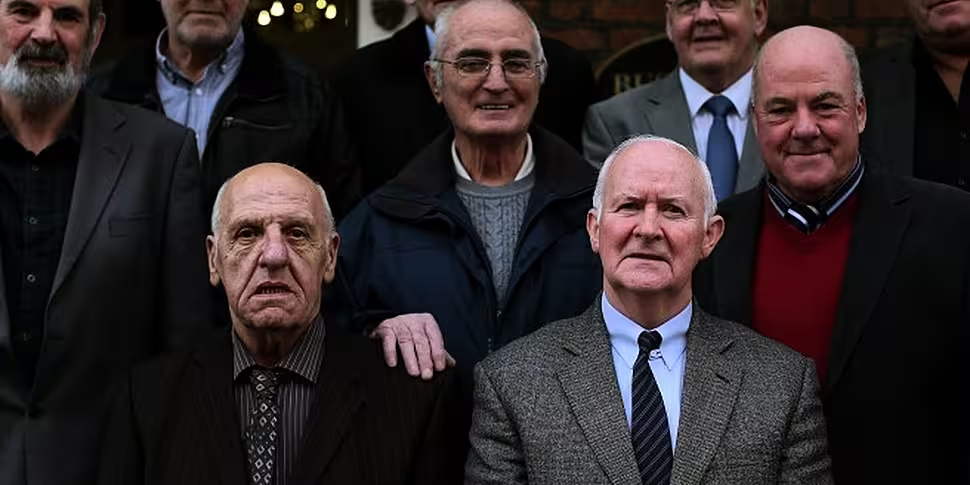Updated: 17.50
Simon Coveney says the Government will 'fully consider' a ruling by the European Court of Human Rights, which found the so-called 'Hooded Men' were not tortured.
The Tánaiste and foreign affairs minister says: "It is important to note that, although the court dismissed the Government's application for a revision, nothing in today's judgment alters the court's original 1978 ruling that the men suffered inhuman and degrading treatment, in breach of Article 3 of the European Convention on Human Rights.
"My thoughts today are with the men who suffered this treatment, and who have had to deal with the long-lasting effects.
"I know that they will be understandably disappointed with this morning’s judgment.
"I am due to meet the men in the coming weeks, and look forward to hearing their views."
Earlier, the court ruled that their treatment by the British army did not amount to torture.
The 14 men have said they were hooded, beaten, deprived of sleep, food and water and forced to listen to loud static noise while being held without trial in Northern Ireland in 1971.
They have also claimed they were dangled from a helicopter and told they were high in the air while wearing the hoods.
The treatment was authorised at the highest level of the British administration.
European Court of Human Rights dismisses the Irish Govt's application for revision of 'Hooded Men' decision of 1978. Finds docs uncovered by RTE not enough evidence of new facts. Original decision that 14 Catholic men were not tortured stands. pic.twitter.com/tbCjRJrdXK
— Juliette Gash (@JulietteGash) March 20, 2018
The European Court of Human Rights ruled in 1978 that, while the men had suffered inhuman and degrading treatment at the hands of the British authorities, it did not amount to torture.
The Irish Government appealed that ruling in 2014 following new evidence uncovered by 'Prime Time'.
However, the European Court found that the Government had not demonstrated the existence of new facts that were unknown to the Court in 1978 or which would have had a decisive influence on the original judgment.
As a result it found there was no justification to revise the 1978 ruling.
The revision request was dismissed by six votes to one – with the judge elected by Ireland finding in favour of a revision.
Amnesty Ireland has slammed the ruling.
The agency's executive director for Ireland, Colm O’Gorman, says it is a narrow technical decision that does not mean the men were not tortured.
“The court has found today that, by the standards applied in 1978, even if all of this evidence had of been before the court, it is likely that the court would have made the same finding – i.e that the men were subjected cruel, inhuman and degrading treatment but not necessarily torture.” he said.
“By today’s standards, there is no doubt about the fact that the court would have found torture and that needs to be understood.”
Additional reporting: Juliette Gash and Jack Quann









